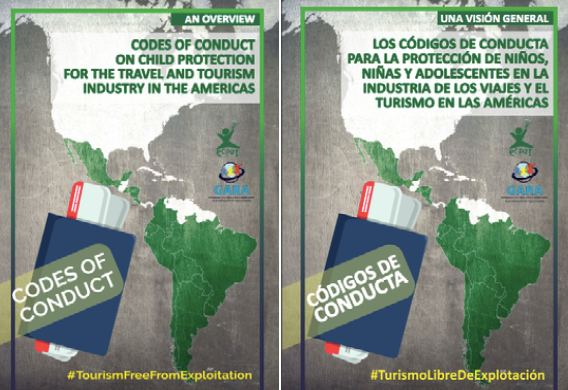Civil society organisations in the Americas have long been working with the travel and tourism sector to protect children from sexual exploitation. An essential tool is codes of conduct that guide all actors in the sector on how to improve their child protection work. In the Americas, national codes of conduct are used, along with the ECPAT hosted initiative The Code, that help meet the international legal standards.
Today, ECPAT International and the Regional Action Group of the Americas (GARA), are releasing the first report that analyses how these codes can be streamlined and collectively work to protect every child in the region from all forms of sexual exploitation.
The report comes at the time when the impact of COVID-19 increases the rates of inequality, poverty, hunger and the necessity to cover basic needs, that further accelerate the vulnerability of children and their families to trafficking and sexual exploitation. All governments, businesses and civil society organisations need to strengthen their child protection efforts and create safe and protective environments for children, now and when the travel and tourism restarts. ECPAT International and GARA’s new report gives insights on how it can be done and includes:
“The report gives in-depth insight on how voluntary and obligatory measures can be practically implemented by governments, the private sector and civil society organisations to protect children from sexual exploitation as part of sustainable and responsible travel and tourism development.”
– Gabriela Kühn, Head of Programme on Child Protection in Travel and Tourism, ECPAT International
“To promote the culture of zero tolerance to the sexual exploitation of children, 16 National Tourism Administrations that are part of GARA, namely from Argentina, Bolivia, Brazil, Chile, Colombia, Costa Rica, Ecuador, El Salvador, Guatemala, Guyana, Honduras, Mexico, Nicaragua, Paraguay, Perú and Uruguay work together with the private sector and civil society organisations to make sure that national codes of conduct are part of wider prevention efforts and processes to create protective environments for children.”
– Karina Baldovino and Gimena Chiazzaro, Secretariat of GARA, Ministry of Tourism of Uruguay


Español: Los códigos de conducta para la protección de niños, niñas y adolescentes en la industria de los viajes y el turismo en las américas
English: Codes of Conduct on Child Protection for the Travel and Tourism Industry in the Americas